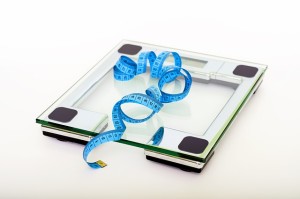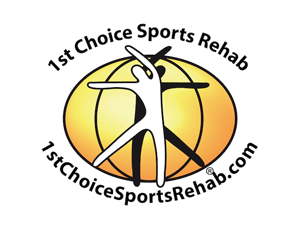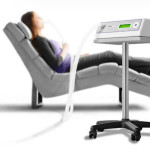Losing Weight – How RMR Can Boost Your Resolution Success
 It’s a new year, and chances are pretty good your resolutions involve losing weight. According to a study at the University of Scranton, the #1 New Year’s resolution in 2015 was to lose weight. How many people actually achieve their New Years goals? About 8%. Yikes! That’s depressing.
It’s a new year, and chances are pretty good your resolutions involve losing weight. According to a study at the University of Scranton, the #1 New Year’s resolution in 2015 was to lose weight. How many people actually achieve their New Years goals? About 8%. Yikes! That’s depressing.
I digress. We are here today to talk about Resting Metabolic Rate (RMR) and how knowing your personal metabolic rate can help you actually meet your New Year’s goals for losing weight. I have had my metabolic rate tested in various formats over the years and have found knowing my RMR was helpful for not only weight loss but in evaluating my overall health and making sure I was taking in enough calories during endurance training.
What is resting metabolic rate?
Resting Metabolic Rate, commonly referred to as RMR, is the rate of energy expended during any given state of rest. Or rather, it’s how many calories your body needs in 24 hours if you did nothing but lie around and watch TV all day. Genetics, age, gender, height, body composition and activity and even environment all play roles in your RMR, making it somewhat fluid over time.
When Losing Weight – Why is RMR so helpful?
You’ve probably heard, read or seen somewhere the phrase “based on a 2,000 calorie per day diet.” Approximately, 96% of the world’s adult population need between 1680-2320 calories per day. So essentially a 2,000 calorie recommendation is an average across all body types, heights, gender and age. It is also more convenient for food manufacturers to give you nutritional information based on that number.
But if you dig deeper, 640 calories is a pretty large spread when trying to lose weight. If you are consuming 2100 calories (which is extremely easy to do if you eat out frequently) but only need 2080 calories per day, you will gain 1 lb per month! Note that this example is just factoring in resting state needs, not when exercise is added. For example, let’s say you are 5’3 and your partner is 5’11. You both exercise 5 days a week for 60 minutes. You eat healthy, avoid sugar, are gluten free and you both eat the same portion sizes at every meal. Somehow you are gaining weight while your partner stays the same. Why? Well, for starters because of the height alone that may afford your partner an extra 200 calories a day. Your portion sizes may be more in line with their caloric needs than yours. So over time, the pounds slowly pack on. More on other factors that affect your RMR in a moment.
Why is knowing RMR important for athletes?
Having knowledge of your RMR is essential for effective nutrition management for several reasons. If you are an endurance athlete training for Ultra-Marathons or long-course Ironman races, your RMR may only range from 37-50% of your actual daily needs during training and can drastically change during the off-season. We’ve all heard the stories of Michael Phelps’s 4,000 calorie breakfasts during training and seen the pictures of him during an Olympic year and the year following when he stops training (let’s just say the 6-pack goes away).
Knowing your RMR during the different training seasons can help you create an effective nutrition plan for both the off-season and during training. During training, you need to make sure you are taking in enough calories so you don’t drop weight at the wrong time, which can lead to fatigue, burnout and injury. Additionally, new endurance athletes often gain weight due to OVER eating because of training demands. Your body may not be used to what you are doing, and you find yourself so hungry you eat anything and everything you can get your hands on, thinking, “I deserve this. I just ran 10 miles, or biked 50 miles.” Knowing your RMR is also important during the off-season, so you understand how much to curb your caloric intake, because taking off the extra pounds is so much harder than putting them on. This tendency has become more pronounced for me as an aging endurance athlete, than when I was swimming in college.
On a side note, the endurance athlete should also know their VO2 maximum and maximum heart rate to determine their exercise metabolic rate for truly accurate planning.
How is RMR measured?
It’s easy to find an on-line calculator where you plug in your weight, age, height, sex and daily activity level. The problem with these is they can be off by as much as 1,000 calories as we tend to over-estimate our daily exercise expenditures. So if you utilize an online tool, be sure you research how the site defines each exercise intensity variable.
Best practices for measuring RMR is in a clinical setting utilizing indirect calorimetry. At 1st Choice Sports Rehab, LLC, we utilize Korr Metacheck, which measures the concentration of oxygen that the client breathes out. The RMR test is a simple test where you breathe through a mouthpiece into a machine that adjusts barometric pressure, temperature, and humidity. You do need to fast for 12 hours prior to testing (that’s the hardest part), so testing is typically done in the morning. The entire test is done in a resting state and lasts about 15-25 minutes. We also offer VO2 max/lactate threshold testing to complement RMR testing.
Since we know only 8% of people actually succeed with New Years resolutions, what’s their secret? Setting attainable goals along the way and having a map of how to get there. As a triathlete and long distance open water swimmer, I am currently in the process of mapping my training season, as well as the plan for several athletes I coach. So what’s your roadmap for success in 2016?
Related Articles:

Dr. Sasha Stolz has been a competitive swimmer for 25 years, a swimming coach for 10 years, a coach for Team in Training for the Leukemia and Lymphoma Society – and she is an IRONMAN. As a member of the Atlanta Sports Injury Specialists at 1st Choice Sports Rehab Center, she sees patients in our Decatur and Johns Creek offices. To schedule an appointment with Dr. Stolz call 404-377-0011.
Decatur Office
2545 Lawrenceville Hwy
Suite 100
Decatur, GA 30033
404-377-0011
fax 770-939-9353
Johns Creek Office
9810-B Medlock Bridge Rd
Suite 104
Johns Creek, GA 30097
404-300-9931
fax 770-939-9353

